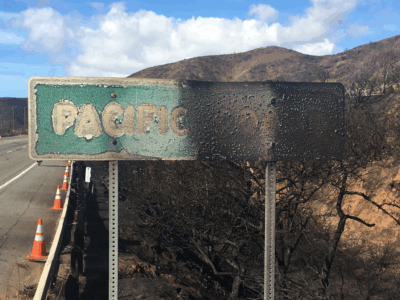Insuring Extreme Heat Risks: Q+A with CA Insurance Commissioner Ricardo Lara
Insurance Commissioner answers questions on insurance and extreme heat issues
Yesterday, CLEE released Insuring Extreme Heat Risks, which investigates the potential for insurance and other financial risk transfer mechanisms to address the multi-faceted and growing risks that climate change-related extreme heat poses to public health, infrastructure, educational and labor productivity, and other vital systems. California Insurance Commissioner Ricardo Lara, who provided vital support for the report and who has led a number of climate change and insurance-related initiatives at CDI, answered the following questions about the intersection of insurance and extreme heat.
Why is extreme heat a priority for the Department of Insurance?
California is already feeling the effects of climate change and that includes record-breaking heat waves. Yet, extreme heat events have not been given much attention for risk transfer products or community insurance concepts. Heat waves have serious health consequences, and the insurance industry needs to better recognize and help mitigate the risks that extreme heat poses.
As we look at the impact of extreme heat waves in 2020, we can project a future where families and seniors living without air conditioning, with medications and food that need to be kept cool, face serious health consequences. In California’s agricultural areas and warehouses, heat waves punish workers and packers, damage crops, and harm businesses that drive our economy. More extreme heat events will continue to strain local governments’ response, including the deployment of cooling centers, as well as our public health and emergency response safety nets. Innovative insurance options could alleviate this problem, and the thorough investigation by the Insuring Extreme Heat Risks report provides a framework for that innovation.
What can policymakers do to advance these priorities?
We know that extreme heat is an urgent public health and economic issue. If policymakers at the state and local level have more tools to mitigate this climate risk that millions of residents are already facing, we can save lives. I want policymakers to be able to utilize insurance as a planning and response tool. Insurance can offer short and long term approaches to extreme heat. When a heat event occurs, communities need a pulse of financial resources to provide cooling centers and transportation for our most vulnerable residents, and risk transfer products can assist in planning for those events. And, in the long term, mitigation measures that address urban heat islands are critical, but require multi-year plans. Policymakers need to balance the short and long-term priorities and risk transfer can be an asset.
What does this mean for the future?
Extreme heat is a new area of interest for insurance companies and insurance regulators. My vision for the future is to increase our ability to assess and communicate extreme heat events and to put in place the planning tools to prepare communities to respond. I joined the Extreme Heat Resilience Alliance in calling for the naming and ranking of heat waves, similar to how we rank tropical storms, in order to better communicate them to the public. The Alliance is a project of the Atlantic Council’s Adrienne Arsht-Rockefeller Foundation Resilience Center with 30 global partners.
California is going to bear the brunt of climate change, and we can be creative and proactive in confronting the challenge of extreme heat–as we are doing with so many other climate challenges, from reducing super pollutants, increasing clean air vehicles, and mitigating wildfires. We need a future where parks and green roofs bring down the risk of extreme heat, and sustainable air conditioning, without HFCs, is used to respond to events and protect vulnerable populations. We need to see combatting the effects of extreme heat as just another part of how California is leading the world on climate action.







Reader Comments